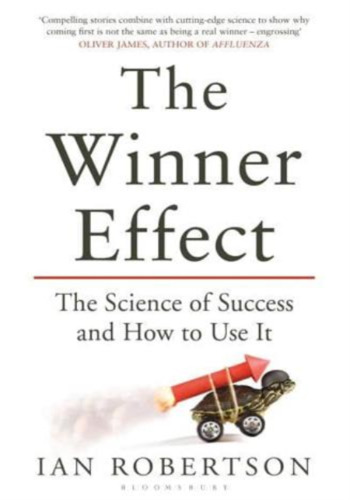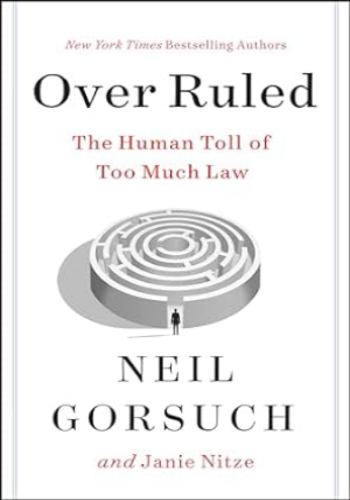In The Winner Effect: The Science of Success and How to Use It, author Ian Robertson argues that success isn't something that only comes to a small subset of the population. Rather, the power to become successful lies within each of us in the form of winner effects - cascading sets of behaviors that contribute to increased self-belief and drive.
This book examines the processes and behaviors which contribute to success and outlines a number of strategies for harnessing the power of the winner effect for your own personal benefit.
Chapter 1: Winning is a Process
This chapter covers the basics of the winner effect, defining it as the "cascading series of behavior choices and attitudes that then lead to a more successful outcome." It goes on to explain the importance of having a goal-oriented mindset and explains the importance of developing micro-goals in order to keep track of progress. It also delves into the power of positive thinking, which plays a huge role in a winning mentality.
The chapter ends with a look at not just the processes involved in becoming successful, but also at the people behind them. It explains the importance of having mentors and supporters to count on for guidance and support.
Real-life Example: Take for example, a person who wants to become an athlete. They first need to set a goal and break it down into smaller, more achievable micro-goals. This may involve joining a local sports club, attending training sessions regularly, and pushing themselves to improve. While working to achieve their larger goal, they should make sure to keep up a positive attitude, seek out mentors or coaches for advice, and surround themselves with people who will support and motivate them.
Chapter 2: On Adaptation
This chapter focuses on the importance of adaptation, which is a key feature of the winner effect. It discusses how the human brain has an innate ability to recognize patterns and adjust its strategies accordingly in order to achieve success. It looks at the power of observational learning and imitation as a tool to learn new skills or ways of thinking quickly. It also touches on the role mental conditioning can play in preparing for a challenge and how it can help to increase resilience and adaptability.
Real-life Example: Take for example, a student who is struggling with the course material for their calculus exams. Rather than become overwhelmed and discouraged, they can use the adaptive techniques mentioned in this chapter. They can watch tutorial videos, practice past papers, and attend tutoring classes, learning from the methods others use to practice and problem solve. This helps them to identify their weaknesses and find new ways to approach the material, eventually leading to greater success.
Chapter 3: Self-Confidence and the Winner Effect
The focus of this chapter is on building self-belief, which is an integral aspect of the winner effect. It explains how self-confidence is generated internally through positive self-talk, visualizing success, and having a growth mindset. It looks at how external rewards can also play a role in boosting self-confidence and outlines practical strategies for developing self-belief.
Real-life Example: Take for example, an aspiring entrepreneur who wants to start a business. They can use the techniques outlined in this chapter to build self-belief, such as taking on smaller tasks and projects to demonstrate their competence and having a growth mindset - believing that failure is an opportunity for learning and growth. With these strategies, they can gradually increase their confidence and self-esteem, helping to ensure success when the time comes to launch their business.
In summary, The Winner Effect: The Science of Success and How to Use It is an essential resource for anyone looking to unlock the power of the winner effect for their own benefit. It offers an in-depth look at the processes and behaviors necessary for success, as well as practical strategies for harnessing these elements for personal gain.







